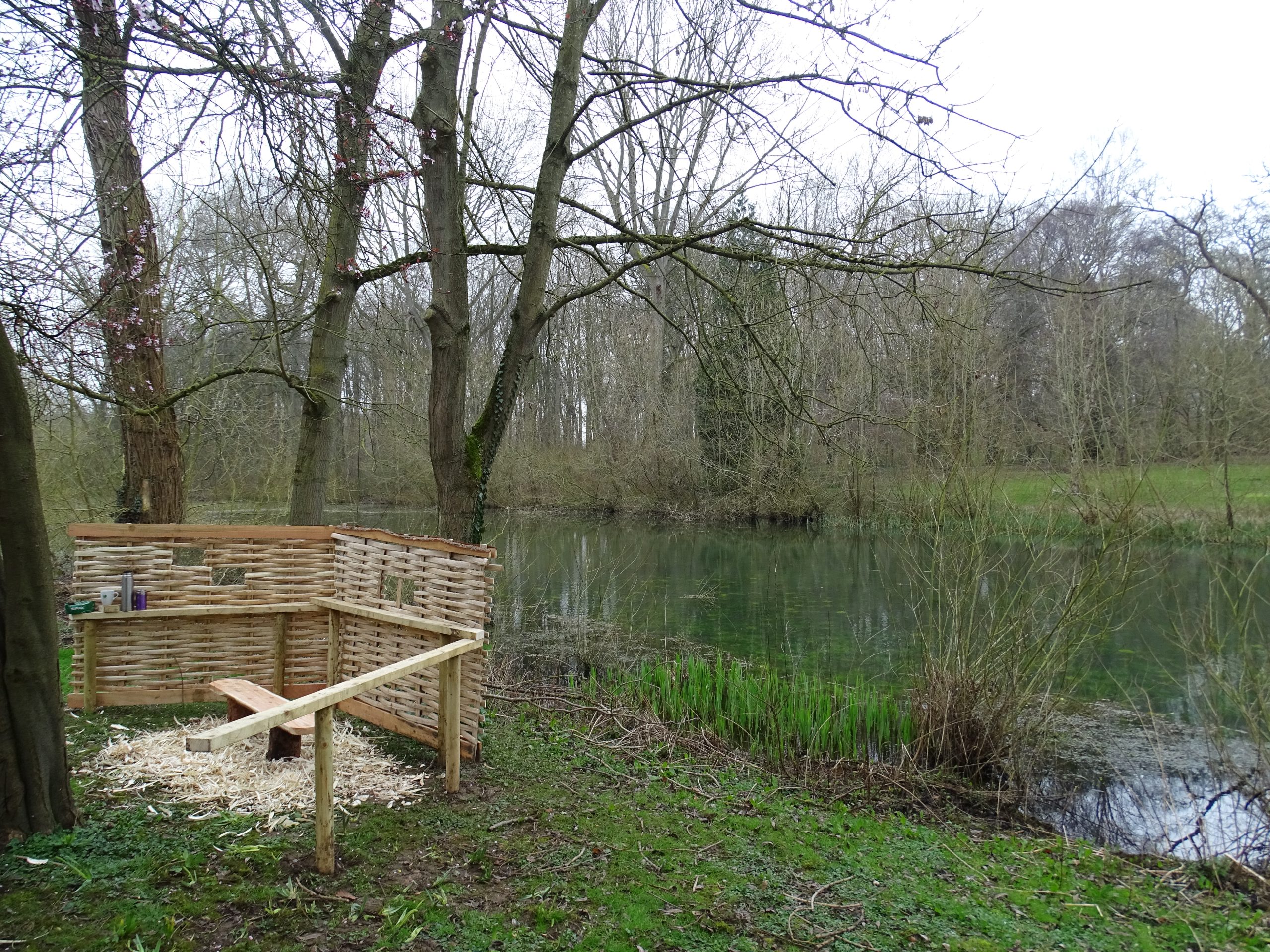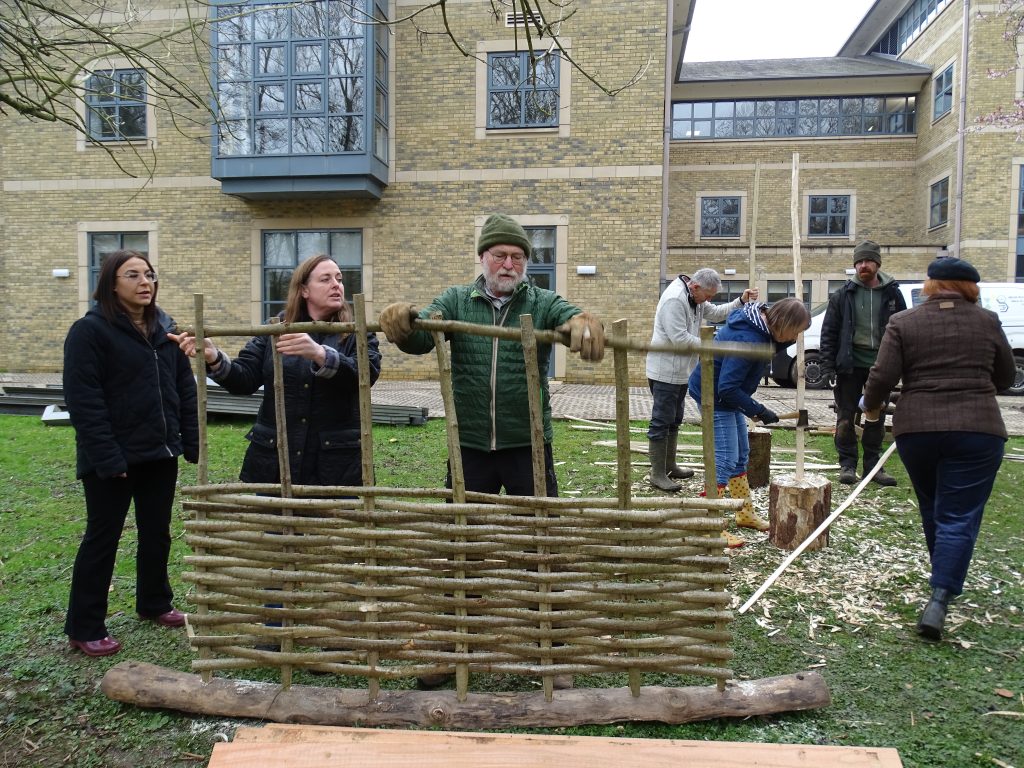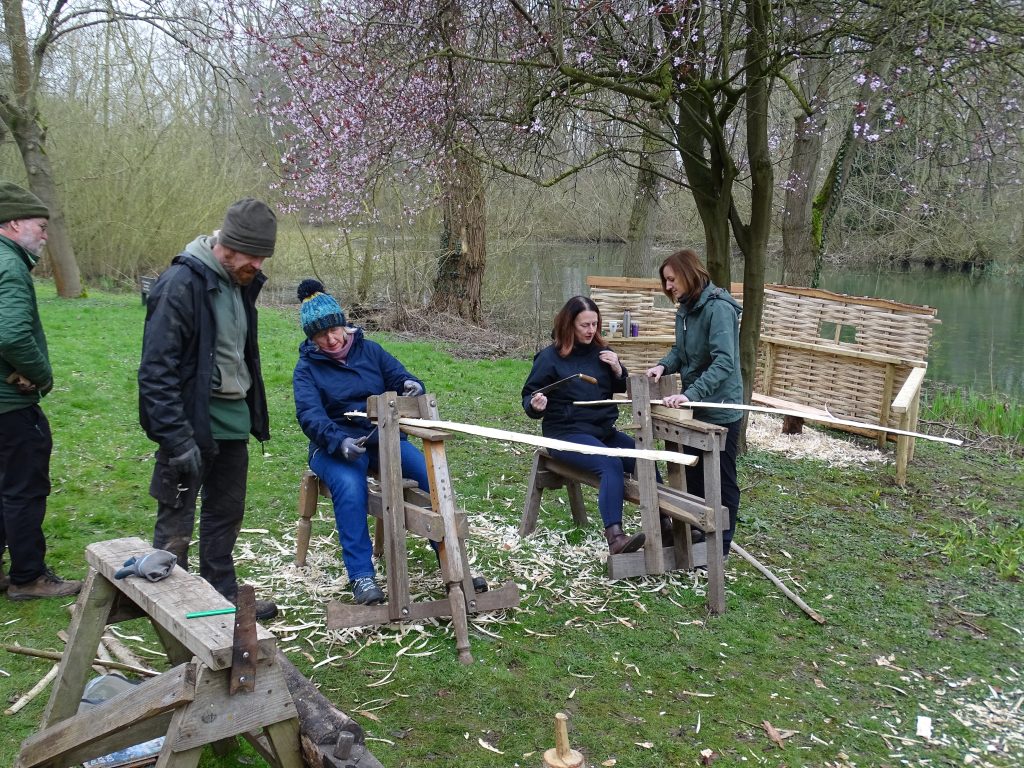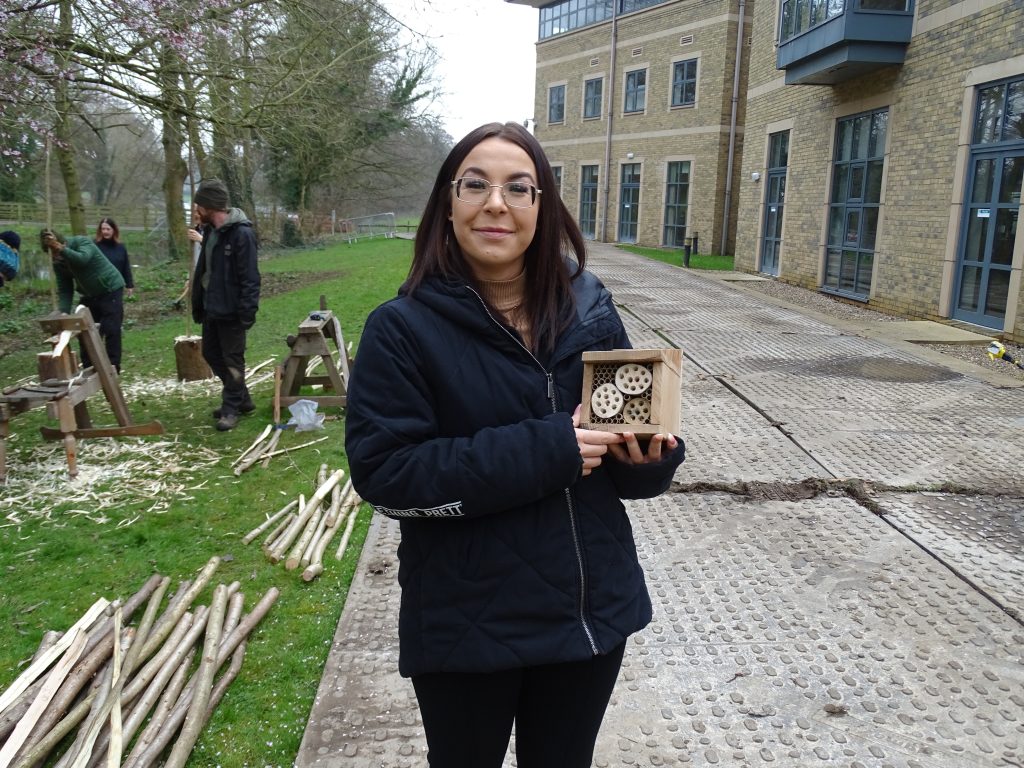- The programme of workshops were part of University of Lincoln’s biodiversity action plan
- The workshops were delivered by Hill Holt Wood, a social enterprise with charitable status
- In total, six hazel panels were crafted by the staff and students and 10 solitary bee hotels were made by Hill Holt Wood
Lindum Group has supported a programme of biodiversity workshops at Lawress Hall, to benefit both nature and staff and student’s health and wellbeing.
Working with Hill Holt Wood, a social enterprise with charitable status, the university provided workshops for staff and students to enable them to access green spaces and spend time in nature.
These workshops included making hazel wood screens with viewing windows on the bank of the refurbished hall’s lake for watching birds and nature. The location was specifically chosen as it sits opposite a hot spot for viewing kingfishers.
Lindum supported the project as part of planned contributions to projects for the University of Lincoln, procured via the SCAPE Regional Construction framework – a direct award process designed to drive collaboration, efficiencies, and meaningful social value.
Claire Lea, Head of Sustainability at the University of Lincoln said: “We are delighted that Lindum supported the hazel hurdle building project. It has provided both staff and students with the opportunity to create spaces on campus to observe wildlife and enjoy the green spaces.
“Hill Holt Wood led the workshops, and over two days supported staff to develop and learn new green woodworking skills – a fantastic opportunity to work together and learn.”
The screens will last for up to 15 years and, as they are not treated, will naturally biodegrade.
The University of Lincoln had recently commissioned a biodiversity net gain survey for Riseholme Park Campus and are now delivering biodiversity action plans (BAP) across the estate. The university is also encouraging staff and students to contribute to monitoring and recording the wildlife they observe through an app as part of the BAP.
Steven Duckering, Lindum Framework Manager, said: “We are thrilled to be able to support important projects such as this, which can both benefit our natural environment and the health and wellbeing of those using the space.
“Lawress Hall benefits from being surrounded by a beautiful natural environment, so it is great to see staff and students being encouraged to utilise and protect it. We are looking forward to seeing the full impact of the efforts being made when the weather finally turns, and the grounds are in full bloom.”
Mark Robinson, Group Chief Executive at SCAPE, added: “At SCAPE, we are committed to ensuring social value is weaved into every one of our projects. Therefore, we are delighted to see the fantastic work the Lindum Group is doing in delivering real social value on this project and leaving a long-lasting legacy for students and the local community for many years to come.”
Other actions taken to improve biodiversity at Riseholme Park Campus includes planting wildflower areas and solitary bee hotels, which were also created and supplied by Hill Holt Wood.
In total, six hazel panels were crafted by the staff and students and 10 solitary bee hotels were made by Hill Holt Wood.




